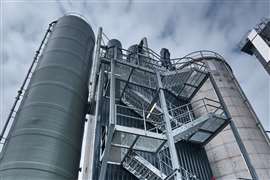Cost harmonisation
25 March 2008
Baugeräteliste (BGL) has long been recognised as a valuable tool for construction companies in Germany, Austria and Belgium. This database of equipment prices and associated costs is a key reference point for planning, organising and costing fleets.
One of its main uses is in the apportionment of equipment costs on joint ventures. It can also be used for analysing equipment costs, comparing costs for different equipment combinations and estimating values for insurance purposes or legal disputes.
Since 2001 BGL has been undergoing a transformation into European harmonised structural guidelines in the form of a database known as Euroliste.
This initiative to set up a standard European construction equipment nomenclature is being carried out in close consultation with the national member federations represented in FIEC.
This year sees the publication of the Euroliste/BGL 2007 in the form of a harmonised database, which is presented for the first time as a multilingual system.
The use of new software will allow estimators and fleet managers to estimate construction equipment costs on a European rather than simply a national basis. This will be done via a modern content management system, providing a greater range of software tools to users.
The software will also make updating data more efficient. By working on a pan-European basis, the on-going revision of individual national equipment lists over a period of several years – a time-consuming and expensive task – will become a thing of the past.
The core elements of the new database will also serve as the basis for further country-specific versions. This will allow provisions to be made for specific national issues such as the as yet un-harmonised tax legislation of the individual Member States, and the impact this has on equipment costs.
Components
The major element of Euroliste is a hierarchy of construction equipment groups, sub-groups and types etc., along with technical parameters and price/value information. In addition a catalogue of spare and wear parts has also been included, which can help with the estimating of repair and maintenance costs, a crucial part of estimating equipment costs over the course of a project or the life of a machine.
The development of an integrated European database should help the exchange and standardisation of data and lead to better, more transparent apportion of costs between contractors working together on projects. One of the elements that will help ensure this is the standardised classification of equipment types through reference numbers, which is essential from the point of view of data processing and compatibility.
In addition, the multilingual nature of the database should help with language and communication problems, in particular between foreign partners working together in consortia, or within multinational construction groups. This is especially pertinent where overseas construction contracts with foreign construction partners are concerned. This should lead to greater efficiency and better cooperation in the pan-European construction industry.
The use of software developed by independent third parties and the freedom to be able to use all web technologies, will make fast and simple data processing and data integration into various user systems across Europe possible as well as facilitating the use of various programming tools.
Many European construction federations have already indicated their interest in further developing the new European data structure on a joint basis, and of adopting the concept of Euroliste BGL 2007 in their country on behalf of their member companies.
For further information please contact FIEC or the Hauptverband der Deutschen Bauindustrie:
www.fiec.eu
www.bauindustrie.de




